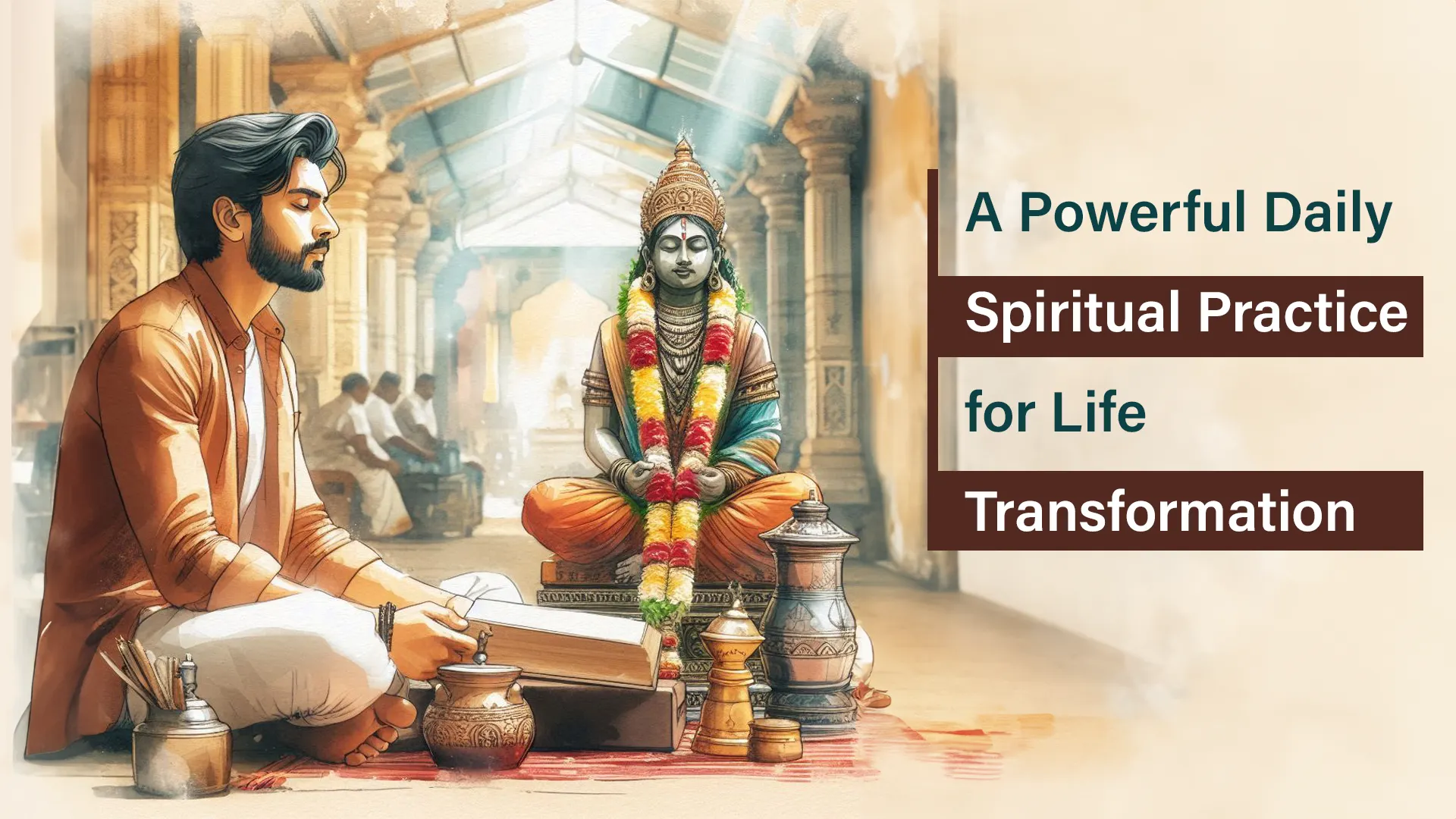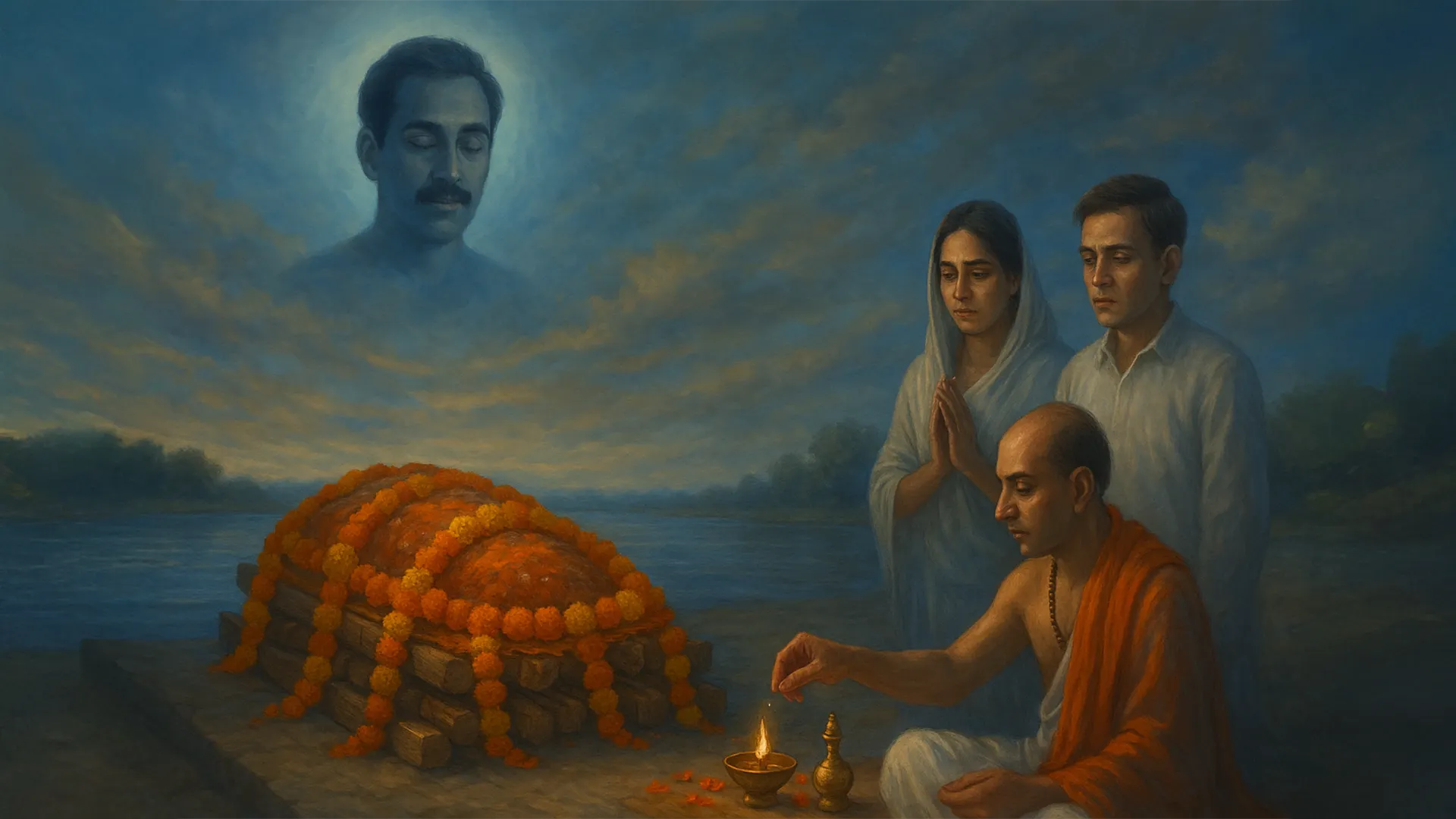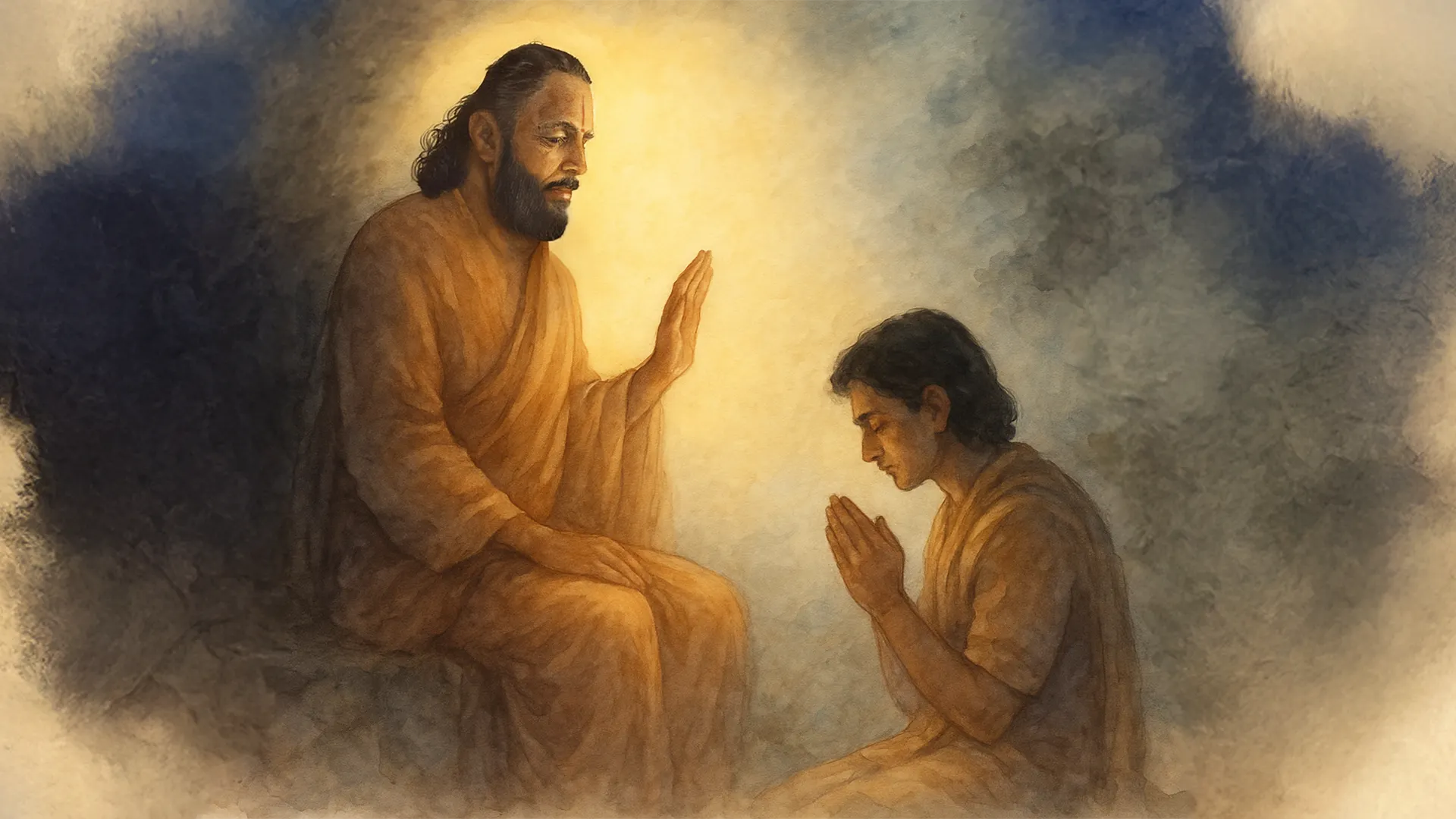The Western philosopher John Milton said that the mind is a place of its own. It can make heaven out of hell and hell out of heaven. So, life transformation requires the purification of the mind.
Tavrit and Suvrit are two brothers who leave their homes to listen to the Shreemad Bhagavat Katha in a temple. On the way, they get caught in a terrible storm. To take shelter, they run into the only building nearby. Once inside, they realise it is a brothel. Ladies of the night are entertaining clients with dance.
Tavrit is aghast and says, "Ah, what a house of sin. We need to get out of here as quickly as possible."
Suvrit soothes him, saying, "My dear brother, it's raining outside. Let's wait until the rain stops."
"Huh? Your mind is tempted. That's why you say so," Tavrit responds and stomps out. He braves the rain to reach the temple and sits down to listen to the discourse on Shreemad Bhagavat. But slowly, he gets bored and starts thinking, "How terrible this is. I made a wrong decision. My brother must be enjoying life there in the brothel."
On the other hand, Suvrit starts regretting, "Why did I not follow my brother? I am not made of salt or sugar; a little bit of rain wouldn't have melted me."
So, although physically in the brothel, Suvrit's mind is in the Bhagavat Katha, while his elder brother, sitting in the temple, is thinking about the brothel.
The Puranas state that when the rain subsides, they get out and walk towards each other. The moment they meet, they are struck by lightning, and both die on the spot. The Yamduts (messengers of death) come to get Tavrit.
He protests, "You seem to have made a mistake. I was in the temple, and my brother was in the brothel."
The Yamduts explain, "Although you were in the temple physically, your mind was in a place of sin."
So, in the spiritual realm, the mind is of paramount importance. Veritably, we are where our mind is. In the material realm, external etiquette and show have value. But while the world looks outside, God looks within. Hence, in this spiritual journey, we need to purify ourselves from the inside.
How to Purify Our Mind?
The Bhagavad Gita states:
मां च योऽव्यभिचारेण भक्तियोगेन सेवते |
स गुणान्समतीत्यैतान्ब्रह्मभूयाय कल्पते ||
māṁ cha yo ’vyabhichāreṇa bhakti-yogena sevate
sa guṇān samatītyaitān brahma-bhūyāya kalpate
Gita 14.26
Meaning: Those who serve Me with unalloyed devotion rise above the three modes of material nature and come to the level of the Brahman.
Shree Krishna says, "Arjun, your mind is seated in the three gunas, the three modes of material nature: sattva, rajas, and tamas. I am tri-gunatit, which means I transcend these three modes. When you attach your mind to Me, it will start getting purified."
But how do we attach the mind to the Supreme? We need to establish a daily practice. Consider the example of milk and water. If we pour milk into the water, it mixes with it and loses its undiluted identity. However, if we keep the milk separate from the water for some time, transform it into yoghurt, and then churn it to extract butter, that butter can challenge the water. The butter will not mix with the water but float on it.
The same milk becomes immiscible when it turns into butter. How? By staying apart from the water and enhancing its power. Our mind is like the milk, and the world is like the water. Despite our best intentions to uplift our thoughts, worldly distractions often get in the way as we go through our worldly duties.
Hence, the scriptures advise us to take some time daily for ekanta sadhana (spiritual practice in isolation). During this time, block out the entire world and focus solely on establishing the mind in the Supreme. This is sadhana. Spiritual practice in isolation will then help us throughout the day. If we do our spiritual practice for one hour, we will find that our life has transformed, and our consciousness is elevated for the rest of the time.
In JKYog, Swami Mukundananda teaches us to meditate on God's Names, Forms, Virtues, Abodes, and Associates. This sadhana is called Roopdhyan. With repeated practice of Roopdhyan meditation, one will reap the benefits of a pure mind, free from greed, anger, lust, illusion, and other impurities. This purification of the mind will lead to attaining the supreme goal. So, the message is to strive to purify our mind by attaching it to the all-pure. Establish a daily routine of sadhana in isolation to achieve this.









What our Participants say